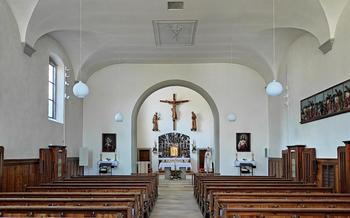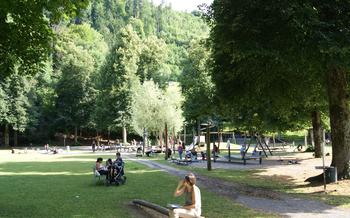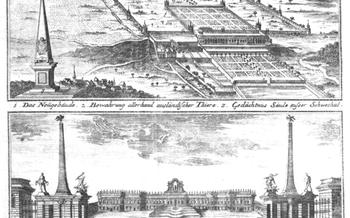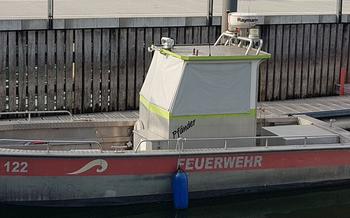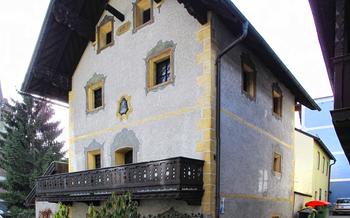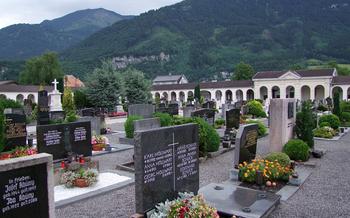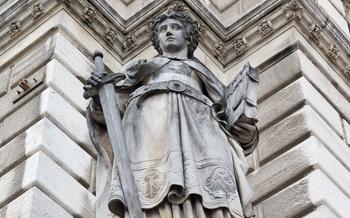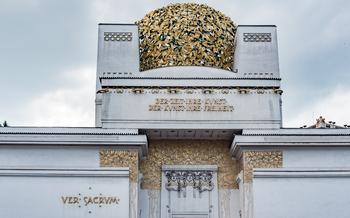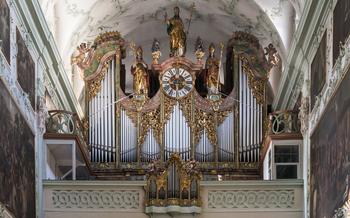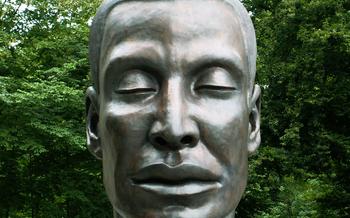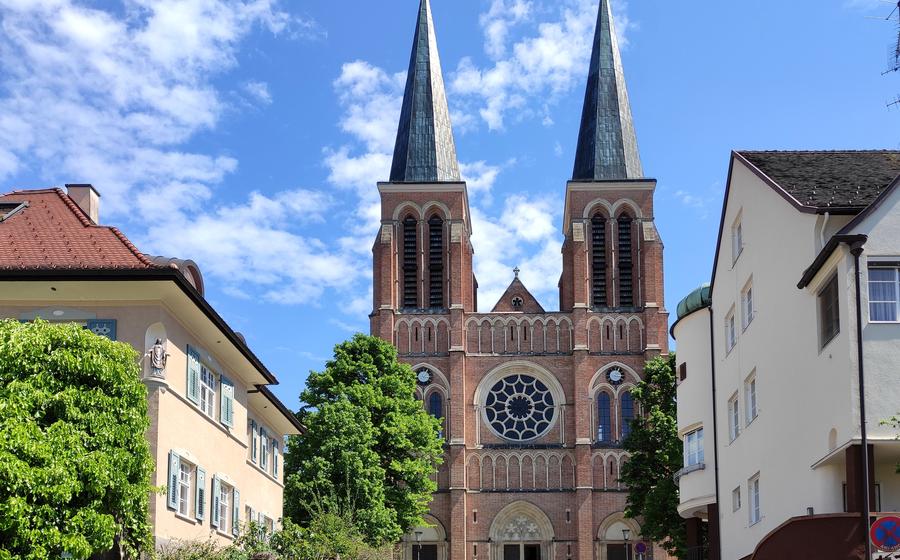
Walsermuseum Riezlern Kleinwalsertal
- Atop the Walsermuseum Riezlern Kleinwalsertal
- A Journey Through Time
- Walser Architecture
- Walser Traditions
- The Walser Dialect
- Walser Migration
- Interactive Activities
- Guided Tours
- Museum Shop
- Accessibility
- Educational Programs
- Events and Exhibitions
- Surrounding Attractions
- Insider Tip
Atop the Walsermuseum Riezlern Kleinwalsertal
Nestled in the picturesque village of Riezlern, amidst the breathtaking landscapes of the Kleinwalsertal valley, lies the Walsermuseum Riezlern Kleinwalsertal, a treasure trove of cultural heritage dedicated to preserving and showcasing the rich history and traditions of the Walser people. The museum's location, nestled amidst the towering peaks and lush valleys of the Alps, provides a stunning backdrop for its exhibits, inviting visitors to delve into the fascinating world of Walser culture.
To reach the museum, visitors can embark on a scenic journey through the winding roads of the Kleinwalsertal valley, surrounded by picturesque villages and enchanting landscapes. The museum is easily accessible by car, and ample parking is available nearby. For those seeking a more immersive experience, the Walserbus, a local bus service, offers convenient transportation from nearby towns and villages.
Established in 1991, the Walsermuseum Riezlern Kleinwalsertal has become a renowned institution dedicated to promoting and preserving the unique cultural heritage of the Walser people. The museum's exhibits, housed in a traditional Walser house, take visitors on a captivating journey through the history, traditions, and craftsmanship of this resilient community.
The Walsermuseum Riezlern Kleinwalsertal is a must-visit destination for anyone seeking to gain a deeper understanding of the Walser culture and its enduring legacy. Whether you're a history buff, a culture enthusiast, or simply seeking a unique and enriching experience, the museum offers an unforgettable glimpse into the lives of the Walser people, whose traditions continue to shape the identity of the Kleinwalsertal region.
A Journey Through Time
The Walsermuseum Riezlern Kleinwalsertal is a treasure trove of interactive exhibits that transport visitors back in time to experience the fascinating history and culture of the Walser people. Through engaging displays, visitors can learn about the Walser migration, their unique language, traditional clothing, and customs. Interactive touchscreens, multimedia presentations, and hands-on activities bring the past to life, allowing visitors to immerse themselves in the rich heritage of this resilient community.
The museum's exhibits highlight the challenges and triumphs of the Walser people as they settled in the Kleinwalsertal region. Visitors can trace the Walser migration from their origins in the Valais region of Switzerland to their new home in the Austrian Alps. Through interactive maps, timelines, and personal stories, the museum brings to life the struggles and determination of these pioneering settlers.
A special section of the museum is dedicated to the Walser dialect, a unique language that has evolved over centuries of isolation. Visitors can listen to audio recordings of Walser speakers, learn about the dialect's grammar and vocabulary, and even try their hand at speaking a few phrases themselves. The museum's commitment to preserving this endangered language is a testament to its dedication to protecting Walser heritage.
Walser Architecture
The Walser people are renowned for their distinctive architectural style, which is showcased at the Walsermuseum Riezlern Kleinwalsertal. Walser houses are characterized by their sturdy construction, using locally sourced wood and stone, and their unique design features. The houses are typically two stories high, with a steeply pitched gable roof and a balcony or loggia on the upper floor. The ground floor is often used for storage and livestock, while the living quarters are located on the upper floor.
The Walser people built their houses to withstand the harsh alpine climate and to make the most of the limited space available. The thick walls and small windows helped to keep the houses warm in winter, while the balconies and loggias provided additional living space and a place to dry clothes and store firewood.
Walser houses are an important part of the region's cultural heritage, and the Walsermuseum Riezlern Kleinwalsertal plays a vital role in preserving and promoting this unique architectural tradition. The museum features a number of exhibits on Walser architecture, including a full-scale replica of a traditional Walser house. Visitors can learn about the different types of Walser houses, their construction methods, and their cultural significance.
Walser Traditions
The Walsermuseum Riezlern Kleinwalsertal also delves into the rich traditions of the Walser people. Their unique attire, known as "Tracht," holds a special place in their culture. The museum showcases traditional Walser clothing, highlighting the intricate embroidery and vibrant colors that symbolize their identity. Visitors can learn about the different types of clothing worn for various occasions, from everyday wear to festive attire.
Walser cuisine is another integral part of their heritage. The museum features a section dedicated to traditional dishes, showcasing the use of local ingredients and time-honored recipes. Visitors can discover the secrets behind dishes like "Kässpätzle" (cheese noodles), "Riebel" (cornmeal mush), and "Schupfnudeln" (potato dumplings), which have been passed down through generations.
The Walser people are known for their vibrant customs and festivals. The museum brings these traditions to life through interactive exhibits and displays. Visitors can learn about the significance of events like "Almabtrieb" (the return of the cattle from the mountain pastures) and "Fasnacht" (Carnival), which are celebrated with colorful parades, music, and dancing.
The Walser Dialect
The Walser language, also known as Walser German, is a unique language spoken by the Walser people. It is a dialect of Swiss German that has evolved over time due to the isolation of the Walser communities in the Alps. The museum showcases the history and evolution of the Walser dialect through interactive exhibits and audio recordings. Visitors can learn about the different dialects spoken in the Kleinwalsertal region and how they have changed over time. The museum also hosts regular events and workshops to promote the preservation of the Walser dialect and to encourage its use among younger generations.
Walser Migration
The Walser people were originally from the Valais region of Switzerland, but they migrated to the Kleinwalsertal in the 13th century in search of new land and opportunities. The reasons for their migration are not entirely clear, but it is thought that they were driven by a combination of factors, including population growth, economic hardship, and religious persecution.
The Walser migration took place in several stages, with the first group of settlers arriving in the Kleinwalsertal in the early 13th century. They were followed by a second wave of migrants in the 14th century, and a third wave in the 16th century. By the end of the 16th century, the Walser people had established themselves as the dominant population of the Kleinwalsertal.
The Walser migration was a challenging undertaking, as the settlers had to cross high mountain passes and endure harsh weather conditions. They also faced hostility from the local population, who were not always welcoming to the newcomers. Despite these challenges, the Walser people persevered and eventually established a thriving community in the Kleinwalsertal.
The Walsermuseum Riezlern Kleinwalsertal sheds light on the Walser migration through its exhibits and displays. Visitors can learn about the reasons for the migration, the challenges faced by the settlers, and the impact of the migration on the region. The museum also highlights the contributions of the Walser people to the culture and heritage of the Kleinwalsertal.
Interactive Activities
The Walsermuseum Riezlern Kleinwalsertal offers a range of interactive activities that bring history to life for visitors of all ages. Hands-on exhibits allow visitors to experience Walser life firsthand, from learning how to make cheese to trying on traditional clothing. Interactive displays provide a deeper understanding of the Walser culture, showcasing their customs, traditions, and way of life.
Through these interactive experiences, the museum makes history tangible and engaging. Visitors can step into the shoes of the Walser people, learning about their challenges, triumphs, and daily lives. The hands-on activities foster a deeper connection to the past, making the museum a truly immersive experience.
Guided Tours
The Walsermuseum offers a variety of guided tours that provide a deeper insight into the fascinating world of the Walser people. Led by knowledgeable and passionate guides, these tours take visitors on a journey through time, exploring the museum's exhibits and shedding light on the unique history, culture, and traditions of the Walser community.
Guided tours are available in different languages, including English, German, and French, ensuring that visitors from all over the world can learn about the Walser heritage. Tours can be booked in advance or upon arrival at the museum, depending on availability.
One of the most popular guided tours is the "Walser Village Tour," which takes visitors on a walk through the picturesque village of Riezlern, showcasing the traditional Walser houses and providing insights into the daily life of the Walser people. Another popular tour is the "Walser Heritage Tour," which focuses on the history and culture of the Walser people, exploring their origins, migration, and unique traditions.
Insider Tip: To make the most of your guided tour, be sure to ask your guide questions and engage in discussions. The guides are incredibly knowledgeable and passionate about Walser culture, and they are always happy to share their insights and answer any questions you may have.
Museum Shop
The Walsermuseum Riezlern Kleinwalsertal is home to a charming museum shop that offers a unique selection of souvenirs and handicrafts. Take home a piece of Walser culture by browsing the shop's shelves, which are stocked with traditional clothing, handmade crafts, and local delicacies. You'll find everything from intricate wood carvings and textiles to delicious cheeses and honey, all crafted by local artisans.
By purchasing from the museum shop, you not only take home a special memento of your visit but also support the local economy and help preserve Walser traditions. The proceeds from the shop are used to fund the museum's ongoing exhibitions and educational programs, ensuring that the Walser heritage continues to be celebrated and shared with future generations.
So, whether you're looking for a unique gift or simply want to treat yourself to a special souvenir, be sure to visit the museum shop. You'll find a variety of items to choose from, each one carefully selected to represent the rich culture of the Walser people.
Accessibility
The Walsermuseum Riezlern Kleinwalsertal is committed to providing an accessible and inclusive environment for all visitors. The museum features a range of facilities to cater to visitors with disabilities, ensuring that everyone can enjoy and learn from its exhibits.
Wheelchair users and visitors with limited mobility have access to ramps, elevators, and accessible restrooms throughout the museum. The museum also provides wheelchairs for visitors who need them.
To further enhance the experience for visitors with hearing impairments, the museum offers audio guides in multiple languages. These audio guides provide detailed descriptions of the exhibits, allowing visitors to explore the museum at their own pace and in their preferred language.
For visitors with visual impairments, the museum provides tactile exhibits and models that allow them to experience and understand the museum's content through touch. Additionally, the museum offers guided tours that include audio descriptions of the exhibits, ensuring that everyone can fully appreciate the museum's offerings.
The Walsermuseum Riezlern Kleinwalsertal is dedicated to creating an inclusive environment where everyone feels welcome and can engage with the museum's exhibits and programs. By providing accessible facilities and services, the museum ensures that visitors of all abilities can have a fulfilling and educational experience.
Educational Programs
The Walsermuseum Riezlern Kleinwalsertal extends its reach beyond its walls through a variety of educational programs and initiatives. Recognizing the importance of preserving and transmitting Walser heritage to future generations, the museum actively engages with the local community, particularly schools and educational institutions. Interactive workshops and educational programs are designed to immerse students in the fascinating world of the Walser people. These programs provide hands-on experiences, allowing students to delve deeper into Walser culture, traditions, and history.
The museum's outreach efforts extend beyond the classroom, reaching into the wider community through special events, lectures, and workshops. These events provide a platform for cultural exchange and promote a sense of shared heritage among the locals. By fostering a sense of appreciation for their unique cultural identity, the Walsermuseum Riezlern Kleinwalsertal plays a crucial role in safeguarding the legacy of the Walser people for generations to come.
Events and Exhibitions
The Walsermuseum Riezlern Kleinwalsertal is not just a repository of history and culture; it's a dynamic space that hosts a variety of events and exhibitions throughout the year. These events and exhibitions are designed to keep the museum's exhibits fresh, engaging, and relevant to visitors of all ages.
Temporary exhibitions focus on specific aspects of Walser history, culture, and traditions. These exhibitions often feature artifacts, documents, and multimedia displays that provide visitors with a deeper understanding of the Walser people. Past exhibitions have explored topics such as Walser migration, Walser architecture, and Walser crafts.
In addition to temporary exhibitions, the museum also hosts a variety of events, including workshops, lectures, and demonstrations. These events provide visitors with an opportunity to learn more about Walser culture and traditions firsthand. For example, visitors can attend a workshop on traditional Walser crafts, learn about Walser cooking in a demonstration, or listen to a lecture on Walser history.
The museum's calendar of events is always changing, so be sure to check the museum's website or social media pages for upcoming events and exhibitions. Whether you're a history buff, a culture enthusiast, or simply looking for a fun and educational day out, the Walsermuseum Riezlern Kleinwalsertal is sure to have something to offer.
Surrounding Attractions
The Walsermuseum Riezlern Kleinwalsertal is nestled in the picturesque Kleinwalsertal valley, offering visitors a chance to explore the region's natural beauty and rich cultural heritage. The valley is a hiker's paradise, with well-marked trails winding through lush forests, blooming meadows, and past crystal-clear mountain lakes. Explore the Breitachklamm gorge, a natural wonder with cascading waterfalls and towering rock faces. Take a scenic ride on the Kanzelwandbahn cable car for breathtaking panoramic views of the Alps. Visit the nearby towns and villages to discover historic churches, traditional architecture, and local crafts. The Kleinwalsertal also offers a variety of other activities, including swimming, biking, fishing, and skiing, making it a perfect destination for outdoor enthusiasts and nature lovers.
Insider Tip
Best time to visit: Avoid peak tourist season (July-August) for a more intimate experience. Consider visiting during the shoulder seasons (May-June or September-October) to enjoy pleasant weather and fewer crowds.
Hidden gems: Explore the museum's attic, which houses a collection of old farming tools and artifacts that provide a glimpse into the daily lives of the Walser people.
Make the most of your visit: Engage with the museum's interactive exhibits to fully immerse yourself in Walser culture. Participate in guided tours to gain deeper insights into the history and traditions of the Walser people.
Avoid crowds: Visit the museum early in the morning or late in the afternoon to avoid the midday rush. Weekdays are generally quieter than weekends.
